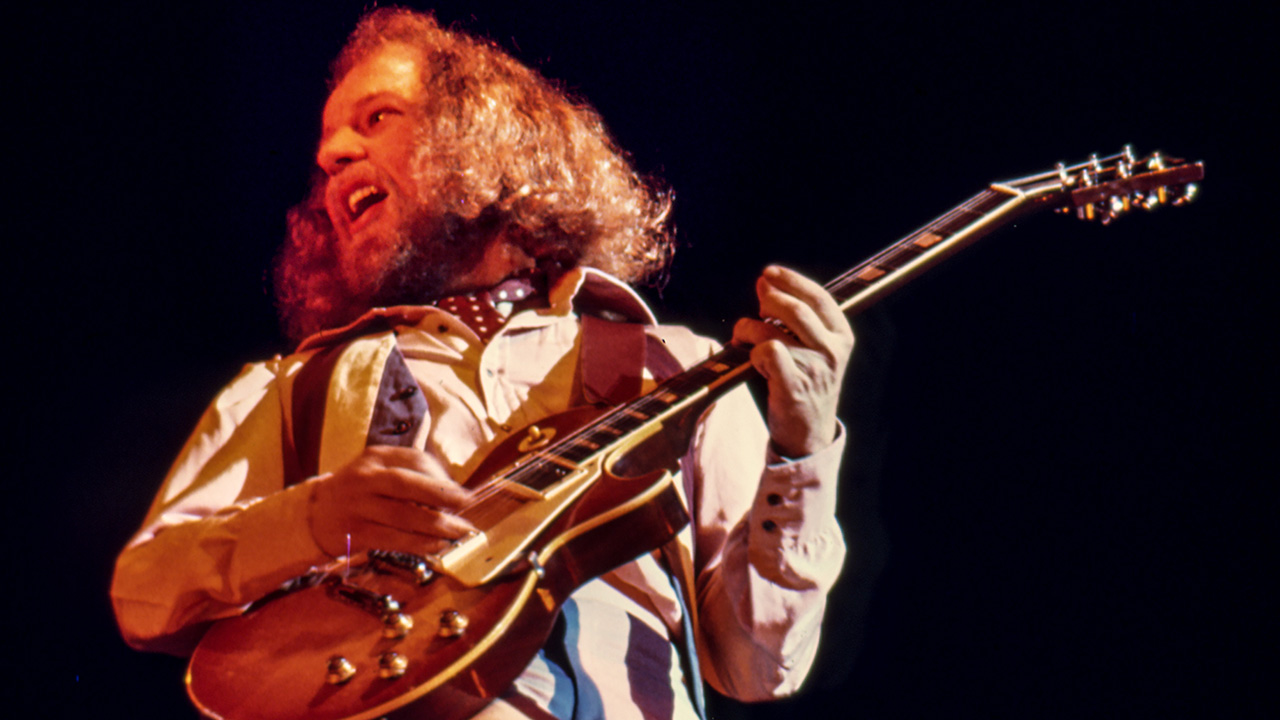You can trust Louder
One life-affirming characteristic of shows by long-gigging, highly respected if rarely chart-bothering prog acts is that their shows have a warm, family reunion vibe. Often playing to a relatively select strand of hardcore fans (we’ll call them Sid and Doris Progger, to paraphrase Private Eye), both band and audience feel as if they’re firmly among friends.
Nektar’s return to this cosy London venue has that air, as founding frontman Roye Albrighton trades avuncular banter with his bandmates and a couple of hundred Sids and Dorises. But hang on… is that a dissenting voice in our midst?
There’s always one, and tonight it’s a noticeably over-refreshed (aren’t they all?) flat-capped wally making loud interjections. He’s evidently keen, nay insistent, for the band to play songs from their early, reputation-making 1970s albums, and to be fair, he’s probably not alone in wanting that. But anyone who has seen this four-piece since they reunited 13 years ago will know they strike a careful balance between past glories and more recent material, to keep both themselves and their public happy.
And there are certainly no complaints when Klaus Henatsch’s cod-classical organ flourishes open A Tab In The Ocean. Albrighton’s fellow veteran from the band’s original line-up, drummer Ron Howden, adds delicately dramatic percussion to build the tension, but also instantly noticeable are newcomer Tom Fry’s fluid basslines, meandering smoothly under and around a sonic palette that still sounds as edgy and unpredictable as ever.
Two live staples from 2008’s Book Of Days album follow, prompting our flat-capped friend to loudly voice his disapproval, but the rest of us can still appreciate Albrighton’s inventive guitar work (highlight: the startling seagull sound he achieves on King Of The Deep) and Henatsch’s haunting backing vocals. Likewise, the big, immediate chorus of Time Machine means its 21st-century provenance is immaterial.
Still, the instantly captivating guitar motif of 1973’s Cast Your Fate is greeted by gasps of excited familiarity. And when they close the main set with the relatively obscure choice of Man In The Moon, the title track of their 1980 German-only album release, its broad arena-rock strokes mean it strikes all the right redemptive chords.
After taking their bow, they quickly encore with the anthemic Good Day. And even when the heckler-in-chief attempts to actually sit on the stage for this track, he’s politely but firmly shuffled pit-wards by the new bassist. In summary, then: thanks for your suggestions, folks, but this is our show, and we’ll play it our way.
Sign up below to get the latest from Prog, plus exclusive special offers, direct to your inbox!
It’s all the better for it.
Johnny is a regular contributor to Prog and Classic Rock magazines, both online and in print. Johnny is a highly experienced and versatile music writer whose tastes range from prog and hard rock to R’n’B, funk, folk and blues. He has written about music professionally for 30 years, surviving the Britpop wars at the NME in the 90s (under the hard-to-shake teenage nickname Johnny Cigarettes) before branching out to newspapers such as The Guardian and The Independent and magazines such as Uncut, Record Collector and, of course, Prog and Classic Rock.


